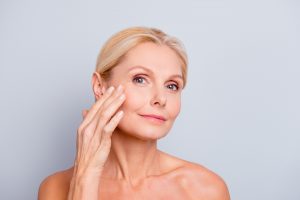 Some people just look younger, but even so, aging occurs inside. There are three causes of cellular aging. Aging is inevitable, but the rate of aging is not because we can do something to slow down cellular aging.
Some people just look younger, but even so, aging occurs inside. There are three causes of cellular aging. Aging is inevitable, but the rate of aging is not because we can do something to slow down cellular aging.
While some marketing fanatics proclaim we can stop the clock and reverse aging, I think we need to understand what happens on a cellular level before buying any creams, injections, or trips to a spa.
If you’re not paying attention to diet and exercise, your cells will age dramatically. For sure, cosmetic surgery can take years off the face, but if you keel over the next day from a stroke, heart attack, or cancer, what’s the point? Who wants to be the best-looking senior in the cemetery?
3 Causes of Cellular Aging
Here are three ways our cells decline as we age that contribute to negative health outcomes. Although these involve complicated biochemical systems, I’ll try to make it simple so that we can understand what to do about each one.
- Increased oxidative stress, leading to increases in free radical species and damage to cells
- Increased inflammation, lowered immune system functioning
- Decreased autophagy, lower mitochondrial renewal and energy production
These processes all contribute to aging on the inside. On the outside, the results show up as age spots, wrinkles, fatigue, fat gain, muscle loss, poor digestion, poor sleep, lack of motivation, mood disorders, memory loss, and brain fog.
1. Oxidative Stress and Cellular Aging
I like this explanation from Andrew Weil, M.D.
Oxidative stress is the total burden placed on organisms by the constant production of free radicals in the normal course of metabolism, plus whatever other pressures the environment brings to bear (natural and artificial radiation, toxins in air, food and water; and miscellaneous sources of oxidizing activity, such as tobacco smoke).
And from Healthline.com:
Oxidative stress is an imbalance between free radicals and antioxidants in your body. Free radicals are oxygen-containing molecules with an uneven number of electrons. The uneven number allows them to easily react with other molecules. Free radicals can cause large chain chemical reactions in your body because they react so easily with other molecules. These reactions are called oxidation. They can be beneficial or harmful.
Fortunately, we have defense mechanisms to hold things in balance. Antioxidants are molecules that can donate an electron to a free radical without making themselves unstable. This causes the free radical to stabilize and become less reactive.
The main thing you can do is to increase your levels of antioxidants and decrease your formation of free radicals. Make sure that you’re obtaining enough antioxidants in your diet. Eating five servings per day of a variety of fruits and vegetables is the best way to provide your body what it needs to produce antioxidants
A regular, moderate exercise routine has been associated with higher natural antioxidant levels and decreased damage caused by oxidative stress.
2. Inflammation and Immune System Dysregulation
When we smoke, overeat, remain inactive, over-indulge in alcohol, stress, and fail to get the sleep we need, our cells react by triggering inflammation. Too much inflammation in the body means the immune system is called into action and becomes overtaxed. When our cells are fighting off damage from over-indulgence, they are more vulnerable to infections and external sources.
One of the biggest problems comes from overeating or eating the wrong foods. Over 75% of our immune system cells are contained in the gut. This means that an inflamed, irritated gut lining leaves us more vulnerable to infections and disease.
Worse, the immune system can become over reactive and begin attacking our own cells, leading to auto-immune diseases such as allergies, multiple sclerosis, and Parkinson’s.
3. Decreased Autophagy and Mitochondrial Dysfunction
Autophagy is a key cellular function that contributes longevity. It literally means that our cells eat themselves and it’s how the body rids itself of old and damaged materials. In this process, an old cell is broken down and it’s chemical components are recycled for use in building new cells.
It is the body’s way of detoxifying cells. But yet again, autophagy slows down as we age. Fortunately there are things we can do to stimulate it. The process can be induced naturally by fasting, high-intensity exercise and restricting carbohydrates.
Mitochondria are structures within cells that convert the energy from food into a form that cells can use. Each cell contains hundreds to thousands of mitochondria, and autophagy helps clear out damaged components so that new mitochondria can be replicated.
Author P.D. Mangan in Stop the Clock says this:
In the fasted state, with no food being taken, autophagy is strongly up-regulated, allowing cells to rid themselves of accumulated junk. Maintaining autophagy levels in their youthful state is critical for lifespan extension.
Signs and Symptoms of Aging
The symptoms of aging cells that we start feeling as a senior—poor energy, fatigue, brain fog—can progress into full blown diseases. These aren’t so much signs of aging as signs the body is hurting and needs help. They are the precursors to the diseases of aging: heart disease, stroke, type 2 diabetes, obesity, and cancers.
We can do something to stop the progression into degenerative diseases. First off, we can pay attention. Do not tell yourself, “It’s okay, I’m just getting older.” Fight back. These symptoms are telling you to go do something.
See your doctor for health advice, get tested and measured, start an exercise program and change your diet if needed. Take supplements where available. Remember, medications will be the first choice of your doctor, and there are often alternatives to try first, like diet and exercise.

Recent Comments